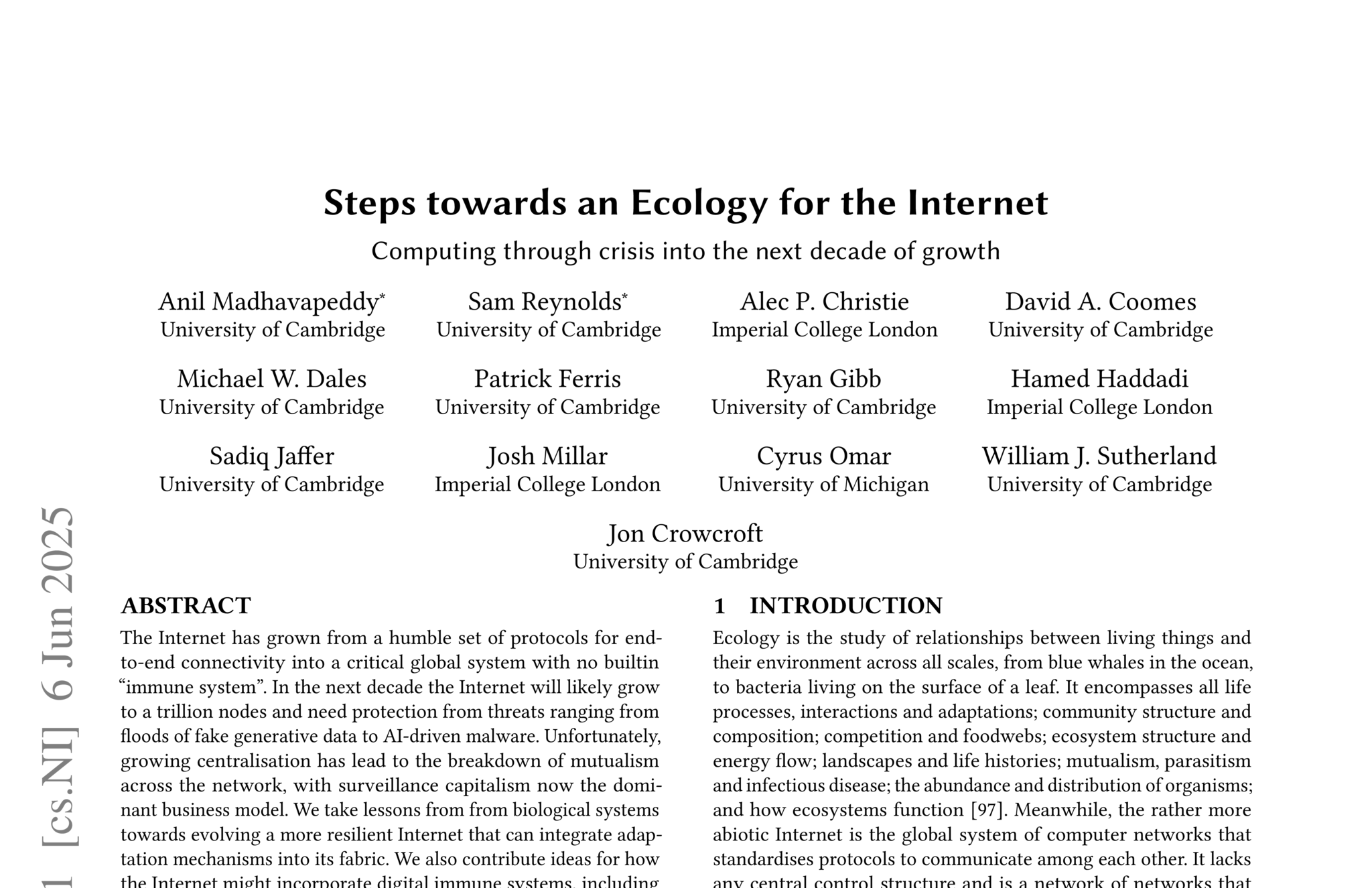Steps towards an Ecology for the Internet
. In Proceedings of the sixth decennial Aarhus conference: Computing X Crisis. .
Abstract
The Internet has grown from a humble set of protocols for end-to-end connectivity into a critical global system with no builtin "immune system". In the next decade the Internet will likely grow to a trillion nodes and need protection from threats ranging from floods of fake generative data to AI-driven malware. Unfortunately, growing centralisation has lead to the breakdown of mutualism across the network, with surveillance capitalism now the dominant business model. We take lessons from from biological systems towards evolving a more resilient Internet that can integrate adaptation mechanisms into its fabric. We also contribute ideas for how the Internet might incorporate digital immune systems, including how software stacks might mutate to encourage more architectural diversity. We strongly advocate for the Internet to "re-decentralise" towards incentivising more mutualistic forms of communication.
The presentation slides also available.
